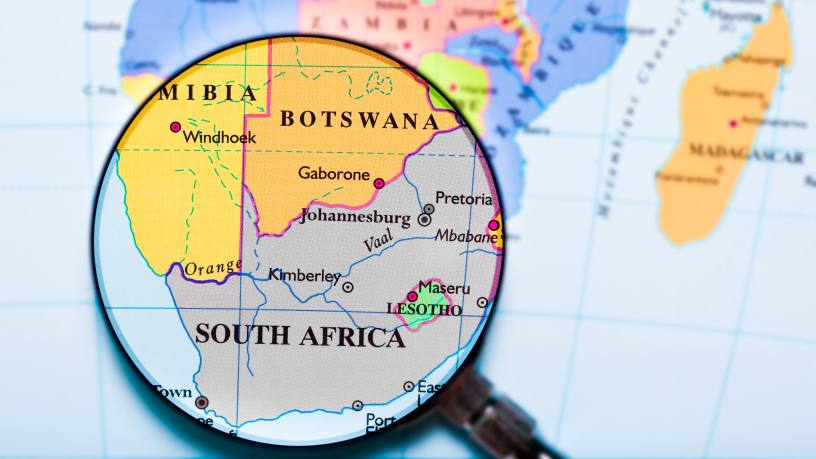South Africa is at risk of being added to the Financial Action Task Force’s (FATF) ‘grey list’ of countries deemed to have deficient anti-money laundering (AML) and countering the financing of terrorism (CFT) controls. Any grey list designation will come with significant costs for the banking sector, in particular, as the scrutiny of cross-border transactions increases.
The South African government has until October this year to demonstrate to FATF, the global AML/CFT watchdog, that weaknesses in its approach to preventing money laundering and terrorist financing have been addressed, before a final decision is announced in February 2023.
Concerns over South Africa’s AML/CFT regime were first raised in FATF’s Mutual Evaluation Report in October 2021. In particular, the organisation noted gaps in financial intelligence, failures to properly investigate and prosecute examples of “state capture” – the siphoning of monies from their intended recipients to private hands – and low levels of technical compliance.
Most of the problems identified by FATF stem from the administration of former president Jacob Zuma. During his tenure, the country was subject to high levels of state-sanctioned corruption, the degradation of key public agencies and limited legislative action to improve the country’s AML/CFT statutory foundations.
“I think this is when South Africa’s [AML/CFT] challenges started piling up,” says Dumiso Vilakazi, a senior compliance professional based in Johannesburg. “Our justice system has also contributed to [today’s problems], in terms of the inadequacy of acting lawfully against the perpetrators of crimes during [the Zuma] period.”
Government response
In response to the threat of grey-listing, the South African government introduced a General Laws Amendment Bill to parliament in August, which will enact specific changes to five existing Acts. These include the Trust Property Control Act, Nonprofit Organisations Act, Financial Sector Regulation Act, Companies Act and Financial Intelligence Centre Act.
A key objective of these changes is to improve the transparency of beneficial ownership in South Africa and to make it easier for law enforcement agencies to pursue money laundering/terrorist financing investigations. According to the National Treasury, these amendments will address 14 of FATF’s 20 recommendations to improve the country’s AML/CFT controls.
A further legislative change, known as the Protection of Constitutional Democracy against Terrorist and Related Activities Amendment Bill, will seek to rectify two further recommendations by FATF. Among the key changes included in this bill are changes to the definition of terrorist activity and harsher penalties for charges of terrorist financing.
Too little too late?
The pace of the government’s legislative response, as well as the scope of its proposed changes, is being called into question given the scant opportunity for discussion or analysis. “There’s [limited opportunity] to debate these changes because South Africa has this incredible deadline to meet,” says Louis de Koker, professor of law at La Trobe University.
Despite the government’s efforts, a number of observers expect the country to fall short in its attempts to meet FATF’s recommendations in time. Though most of the proposed legislative changes should be in place by November, it may be too late to address other shortfalls in the country’s AML/CFT architecture, which includes improving the capacities of certain law enforcement agencies. “There’s no way that South Africa can avoid FATF’s grey list. Institutional weaknesses, especially in state-owned enterprises, and corruption in the country are too great,” says Mr Vilakazi.
Even the top foreign banks will no longer be comfortable engaging with South African banks
Should South Africa be included on FATF’s grey list, it would mark the second time a G20 country has been subject to additional monitoring by the global watchdog, after Turkey in 2021. Though a country’s presence on the grey list is unwelcome, it nevertheless signals that the national authorities are working to improve their AML/CFT regime. Mauritius, for example, was included on the grey list in 2020 before being removed later the following year, after an ambitious governmental effort to meet FATF’s requirements.
But South Africa’s journey has the potential to be more complicated, given the size and sophistication of the country’s economy and the nature of the challenges it faces. “It would be a pretty big step for an economy the size of South Africa’s,” says Mr de Koker.
New hurdles for banks
What’s more, South Africa’s banking system is likely to face the brunt of the difficulties associated with grey list inclusion. This includes extra layers of scrutiny, and complexity, when dealing with foreign financial institutions and conducting cross-border transactions. “Even the top foreign banks will no longer be comfortable engaging with South African banks in terms of cross-border remittance and trade, meaning enhanced due diligence will now need to be taken,” says Mr Vilakazi.
This, in turn, bodes ill for the country’s foreign investment profile at a particularly challenging time for the national economy. “Put yourself in the shoes of a foreign investor: you are less likely to be comfortable putting your money in South Africa when you know there are problems with the AML/CFT framework. Rather, it would be safer to invest elsewhere,” says Mr Vilakazi. “I’d say it’s going to be a stormy journey.”












